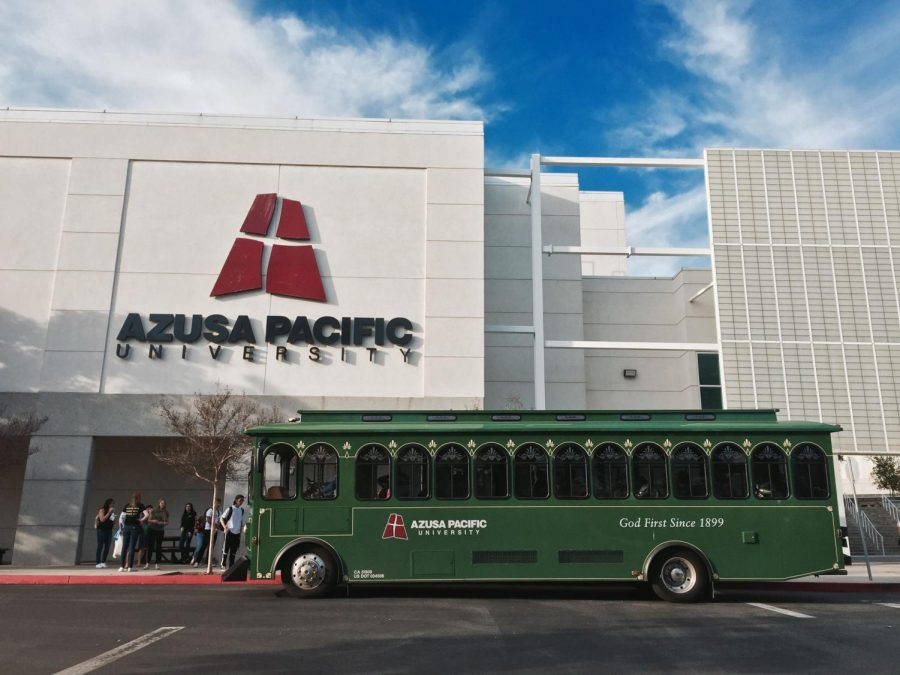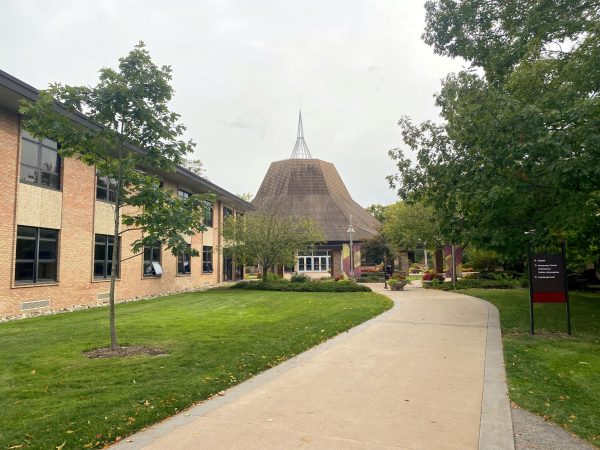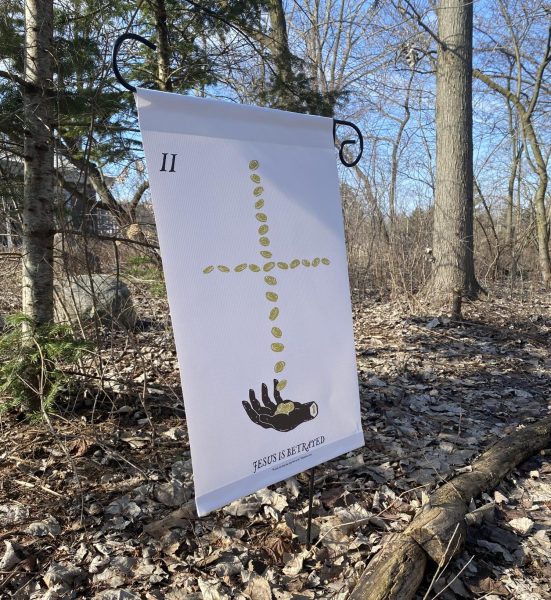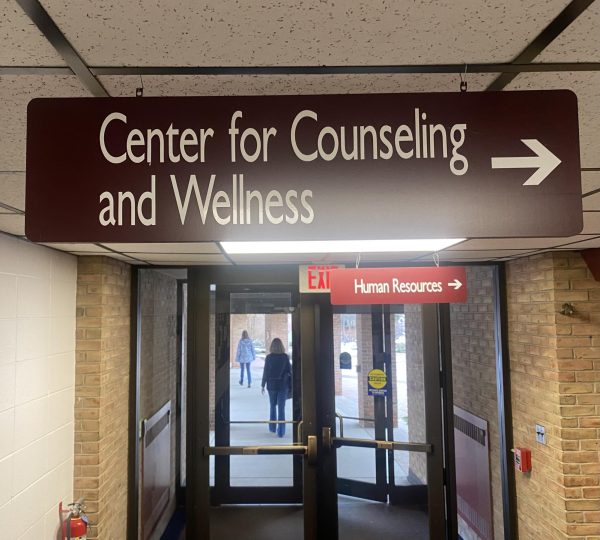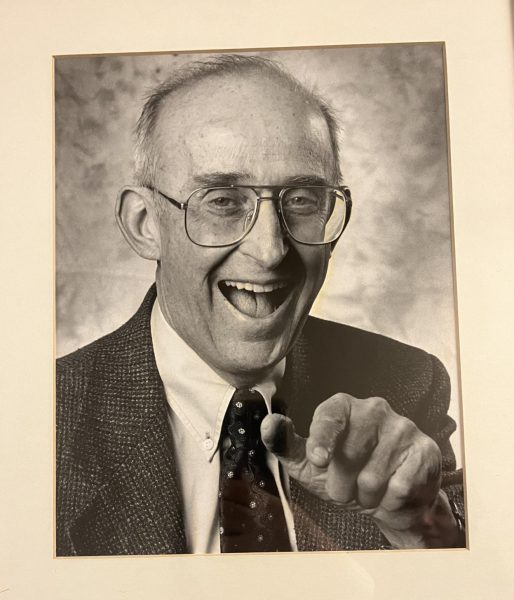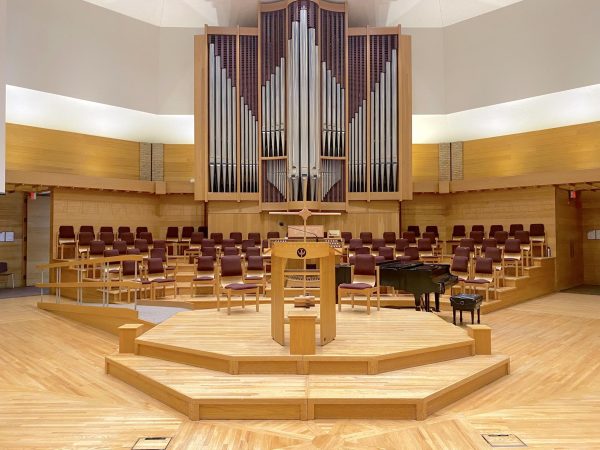Azusa Pacific’s LGBTQ+ policy provokes questions for Christian colleges
Photo curtesy of Azusa Pacific University via Facebook.
Azusa Pacific, with their moto “God First” on a school bus.
Azusa Pacific University (APU) reversed its policy changes allowing LGBTQ+ students to have public romantic relationships no more than two weeks after the policy changes were originally established. According to Christianity Today, this reversal stemmed from their board of trustees. The original change of policy was reportedly a unilateral decision by the university’s administration and was never approved by the board.
This situation at APU raises the issue of how Calvin and other Christian institutions engage the LGBTQ+ community.
The APU administration came under serious criticism following the change of policy, since many felt the university was losing its core value of “God First.” Barbara N. Harrington, a writing professor at APU’s Honors College, stated in a letter to the board that “the loss of ‘God First’ means APU stops progressing and loses itself and its defining character in a wave of change.”
In the same letter, Harrington went on to call for the president’s resignation and the reversal of all the policy changes implemented by the administrative board. This included the suspension of university support for an LGBTQ+ support group called “Haven.” This group had been forced to meet outside of university grounds because it was not endorsed by APU. The original change in policy would have allowed the group to function on campus, but now its fate is uncertain.
This is not the first time Azusa Pacific has made a controversial decision with regards to its LGBTQ+ community. In 2013, APU asked a theology professor and former chair of theology and philosophy to leave the university after he came out as transgender.
Dr. Sarah Visser, vice president of student life at Calvin College, didn’t comment on APU’s decision but specified that while “it may be difficult to engage this conversation, avoidance is not an option [at Calvin].”
Viser said, “Calvin College is owned and operated by the Christian Reformed Church,” and because of the relationship with the CRC, “the Board of Trustees has affirmed that the CRC synodical position on homosexuality is … settled and binding for the college with respect to policies.”
The CRC affirmed in its Acts of Synod 1973 that homosexuality, the orientation, isn’t sinful, but homosexualism (acting on homosexual desires) is. Despite this, Visser confirmed that all policies in the Student Conduct Code apply to all students, no matter their sexual orientation.
Calvin’s Board of Trustees has also taken action to define better the college’s stance on homosexuality. According to Visser, they appointed a group of faculty, staff and board members in 2008 to study homosexuality-related issues in the college community and promote healthy ways to address these and other sexuality-related issues as a whole. This study, along with others in following years, culminated in several policy changes in 2012. Visser emphasized the college’s desire to “engage this area of human life with courage, humility and faithfulness.”
Visser later added, “The goal is to help students explore how to live faithfully and responsibly as image-bearers of God who are also sexual beings.”
By educating staff and other students through Sexuality Series talks, creating a Safer Spaces policy to deal with harassment of any nature, and sponsoring support groups like SAGA, Calvin has built a fairly welcoming community for the LGBTQ+ community.
Campus Ministries offers a support group for LGBTQ+ students, hosted by Pastor Mary Hulst.
Julia Smith, coordinator for student support and sexuality programming, emphasizing the importance of these groups and other efforts, stated, “Through Sexuality Series events, academic classes, dorm discussions, and in everyday conversations with others, we can find ways to sort through the complex questions of sex and gender that are facing the church and society in our time. We need to listen well, engage patiently and always prioritize love.”
Calvin has not experienced the reversal of policy like APU has; Calvin’s code of conduct has always held that sexual relations are to remain within the marriage of a woman and a man. With the CRC’s official stance on homosexuality as its basis, Calvin’s policies on regarding the LGBTQ+ community have been well defined for decades. Barring some extreme circumstances and decisions within the CRC, Calvin is unlikely to change the way they engage with its LGBTQ+ students for years to come.




